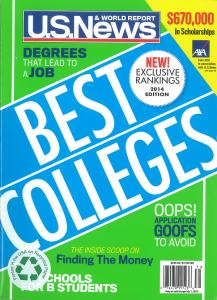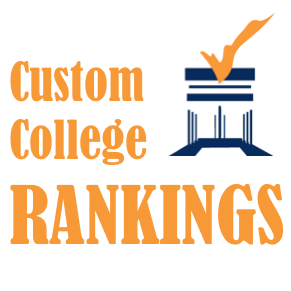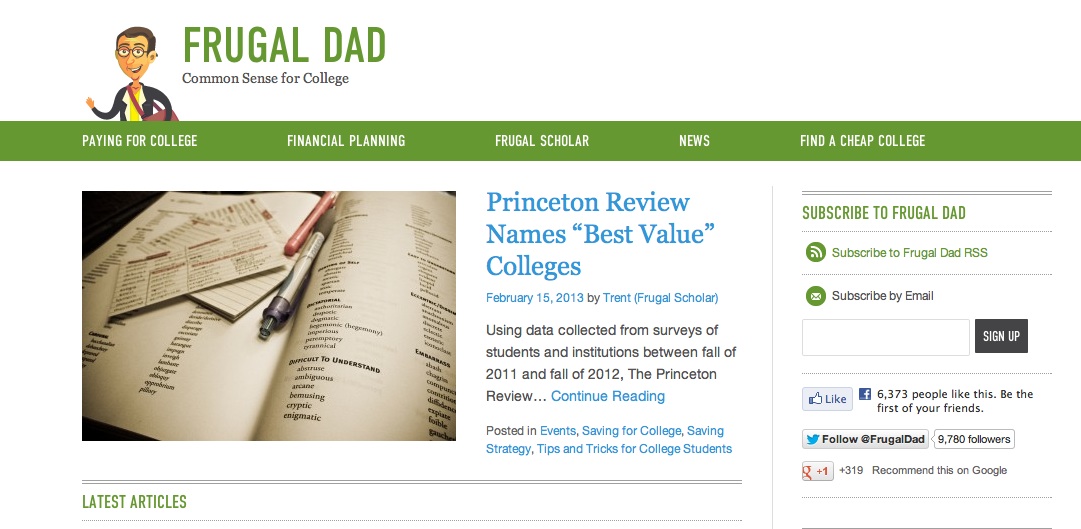 Teenagers. They have such a simplistic view of life. When you ask many of them about college, they reply, “All I need is a degree”. They don’t know where they want to attend or how to choose a college. Many haven’t even thought about it until senior year.
Teenagers. They have such a simplistic view of life. When you ask many of them about college, they reply, “All I need is a degree”. They don’t know where they want to attend or how to choose a college. Many haven’t even thought about it until senior year.
How DO you choose a college? Do you choose it with your heart and not your head? Partially. Is it all in a name? Not necessarily. Is about going to a college close to home? Possibly. Is it about finding a college with Greek life? Could be. All these factors could play into your student’s college choice, but before you randomly choose a college that is famous; or that your student’s friend is attending; or is affordable, you need to do your research.
Here are some key factors you should consider before you make that college list.
The cost
The cost of the college is certainly a consideration. However, it should not be the only one. Most college sticker prices are not the cost you will pay. Expensive colleges aren’t necessarily the best fit for your student. Before you make that college list, however, discuss with your student what you will be willing to pay and add colleges that fall close to or below that figure. Applying to a college that is beyond your family’s reach financially will only cause heartache if your student is accepted and you can’t afford to pay.
Financial aid
If financial aid is a concern, you should search for colleges that offer high percentages of financial aid, such as Catawba College in Salisbury, North Carolina, offering financial aid to 84% of undergraduates, with the average financial aid package around $20,090.1 Facts and figures like this can narrow down the choices. Colleges that offer very little financial aid might not be a good fit for your student who needs help with college costs.
College majors offered
Your student may be interested in studying Asian History (like my son did); but is that a major that will be employable after graduation? For my son, it was not. Some may say that a degree is a degree, and on some levels many companies are simply looking for that diploma. But why spend four years studying something you won’t be able to use when you pursue a career?
In the current issue of U.S. News and World Report’s Best Colleges 2014, you will find “11 Hot Majors That Can Lead to a Great Job.”2 If your student leans in any of these directions look for a college that has degrees in these fields:
- Biomedical Engineering
- Biometrics
- Forensic Science
- Computer Game Design
- Cybersecurity
- Data Science
- Business Analytics
- Petroleum Engineering
- Public Health
- Robotics
- Sustainability
Exploring the ROI (Return on Investment) of various careers is an important part of choosing a college.
Professor to student ratio
If your student has trouble focusing in class, is intimidated by large crowds, and needs more personal instruction to be academically successful, a large state university might need to be ruled out. There are plenty of small liberal arts colleges with great academic records and majors that would be a better fit for your student. When my daughter was choosing a college, our decision was highly dependent on this factor alone. Once we had found colleges that had low professor to student ratios, we were able to look at other key factors in making the decision.
Selectivity
Let’s face it. Everyone wants to go to Harvard. It’s the oldest and most prestigious university in the country and it is #2 in U.S. News rankings. Its name is instantly recognizable and equated with excellence. Unfortunately, Harvard is highly selective. The college offered admission to 5.9% of applicants this year. If your student doesn’t have all A’s and perfect SAT scores, Harvard is not for him.
However, there are many fine colleges that give credence to hard work and commitment. W. Kent Barnds, vice president of enrollment at Augustana College in Rock Island, Illinois, where the average GPA was 3.17, makes the point:3
I think really, to be quite honest, most colleges and universities are delighted to work with the student who has a good work ethic and has taken difficult classes and has earned that B average.
College truly is for everyone. If your student is an average student, don’t despair. Look for the colleges that will recognize his potential and see him as a viable applicant. Better yet, look for the colleges that he would be a top applicant in the applicant pool. This translates into more merit aid in the financial aid package.
What else should you consider?
In addition to these key factors, you might also want to consider location, student services, graduation rates, alumni network, study abroad programs, and available internships.
There is the emotional factor as well that responds to the college surroundings. Rebecca Ridings, class of 2013 says, “I followed my sister to John Brown University and was struck by the beauty of the campus’s blooming dogwoods and its peacefulness”. Yet another current college student, Isha Pandya, class of 2016, notes when speaking of Bryn Mawr College, “The school’s beautiful 19th-century stone buildings, green lawns and cherry blossom trees help to create a welcoming environment.”4
Even with all the right information in place and gathering facts and figures, choosing a college is more than just a college on paper. Most students will tell you that they just “knew” when they set foot on a college campus that it was right for them.
For my readers—if you’re interested in purchasing a copy of U.S. News and World Reports Best Colleges 2014, use the coupon code: SCHOOL25.
______________
 1. Excerpted from “Directory of Colleges and Universities”: in U.S. News & World Report’s Best Colleges 2014. Available at usnews.com/college14. Copyright © 2013 U.S. News & World Report, L.P.; 2 Excerpted from “11 Hot Majors That Can Lead to a Great Job” (which provides additional information, including leading colleges that offer majors in these fields); 3. Excerpted from “What If You Don’t Have All A’s?”; 4. Excerpted from “Why I Picked . . .” All quotes Used by permission of U.S. News & World Report, L.P. All rights reserved. U.S. News allows republication of this excerpt without specific written permission or payment of royalties, provided that the excerpt is republished in its entirety without any modifications and includes this notice. Please contact permissions@usnews.com with any questions.
1. Excerpted from “Directory of Colleges and Universities”: in U.S. News & World Report’s Best Colleges 2014. Available at usnews.com/college14. Copyright © 2013 U.S. News & World Report, L.P.; 2 Excerpted from “11 Hot Majors That Can Lead to a Great Job” (which provides additional information, including leading colleges that offer majors in these fields); 3. Excerpted from “What If You Don’t Have All A’s?”; 4. Excerpted from “Why I Picked . . .” All quotes Used by permission of U.S. News & World Report, L.P. All rights reserved. U.S. News allows republication of this excerpt without specific written permission or payment of royalties, provided that the excerpt is republished in its entirety without any modifications and includes this notice. Please contact permissions@usnews.com with any questions.
This is a paid sponsored post.





 Taking a Different Approach
Taking a Different Approach
 What is Custom College Rankings?
What is Custom College Rankings?




